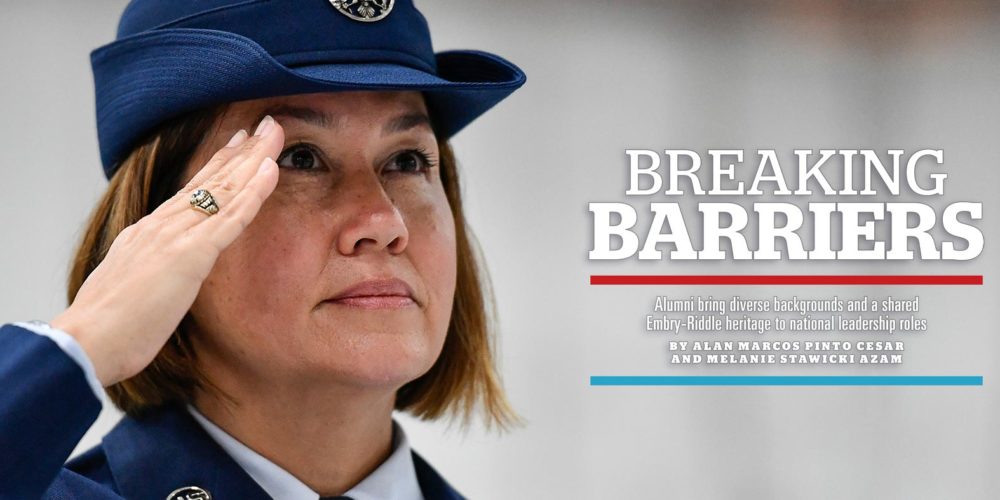Embry-Riddle alumni have a penchant for shattering stereotypes — and the glass ceilings that often come with them. Eagles regularly break gender, racial and ethnic barriers and achieve leadership positions, in spite of facing significant social and cultural challenges in the professional space.
This year, while people across the country raised their voices to protest social injustice against African Americans and other underrepresented populations, several alumni soared above the noise to claim hard-earned roles of national prominence.
Leading the U.S. Air and Space Forces
Perhaps no one soared higher than Gen. Charles Q. Brown Jr. (’95), who made history on June 9, 2020, when the Senate unanimously confirmed his nomination as the 22nd chief of staff for the U.S. Air Force. Brown is the first African American to serve in this role — and the first to lead any U.S. Armed Force as its highest ranking officer.
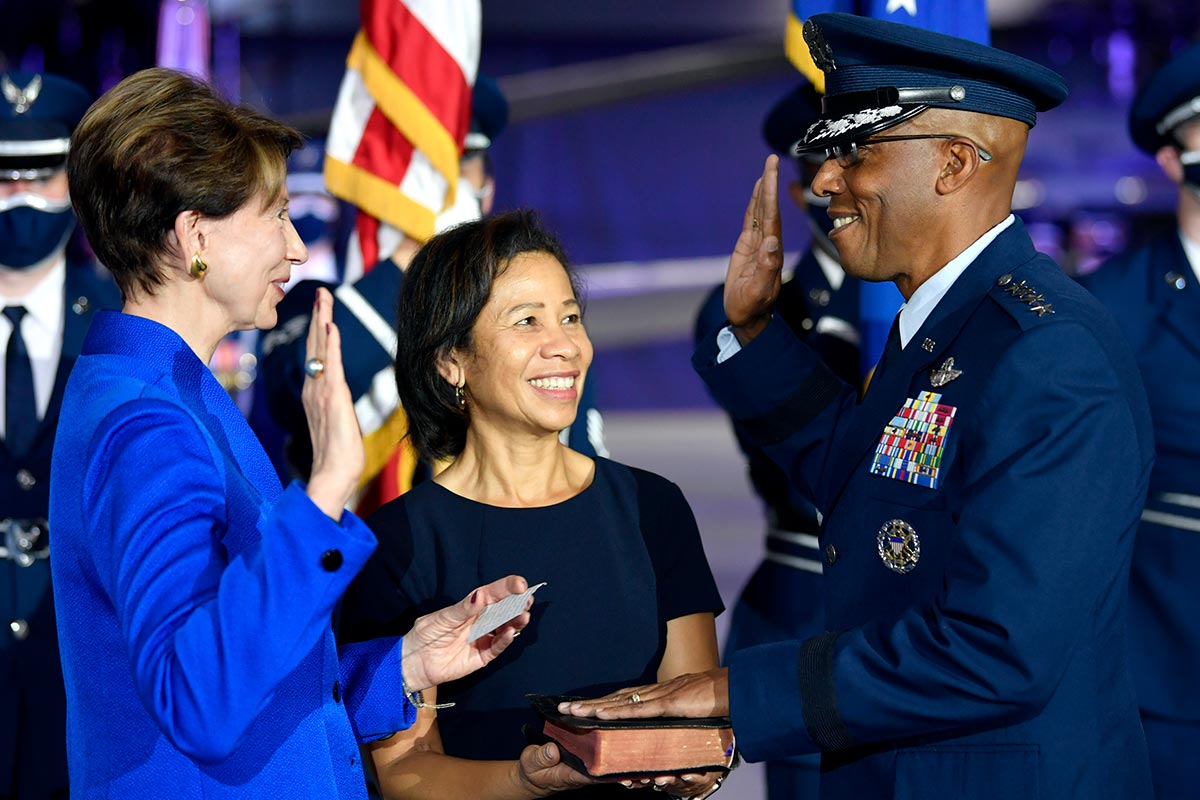
A command pilot who holds a Master of Aeronautical Science from Embry-Riddle, he credits his achievement in part to his ability to see challenges as opportunities, and to African American leaders across the Air Force and military who inspired him, “like the Tuskegee Airmen, Benjamin O. Davis Jr. and Chappie James.”
Honorary Embry-Riddle alumna and Secretary of the Air Force Barbara Barrett (HonDoc ’06) had the privilege of swearing Brown into his new post on Aug. 6.
In taking his oath of office, Brown attained something that would likely have been unimaginable for his grandfather, Robert E. Brown Jr., who served in an all-Black unit during World War II, and his father, Charles Brown, who grew up in segregated San Antonio, Texas. Today, only 8.8% of all military officers are Black, according to Pentagon statistics.
Prior to his recent appointment, Brown commanded the Pacific Air Forces and the air component of the U.S. Indo-Pacific Command. He admits he faced challenges in his career ascent.
“I felt pressure to perform error-free, especially for supervisors I perceived had expected less from me as an African American. I felt that as I rose through the ranks, I often had to work twice as hard to prove their expectations and perceptions of African Americans were invalid, in order to pave the way for those behind me,” he says.
He learned to walk an invisible tightrope between two worlds. “You learn to adapt to the majority while still providing your perspective as an African American, and not the perspective of all African Americans,” Brown says.
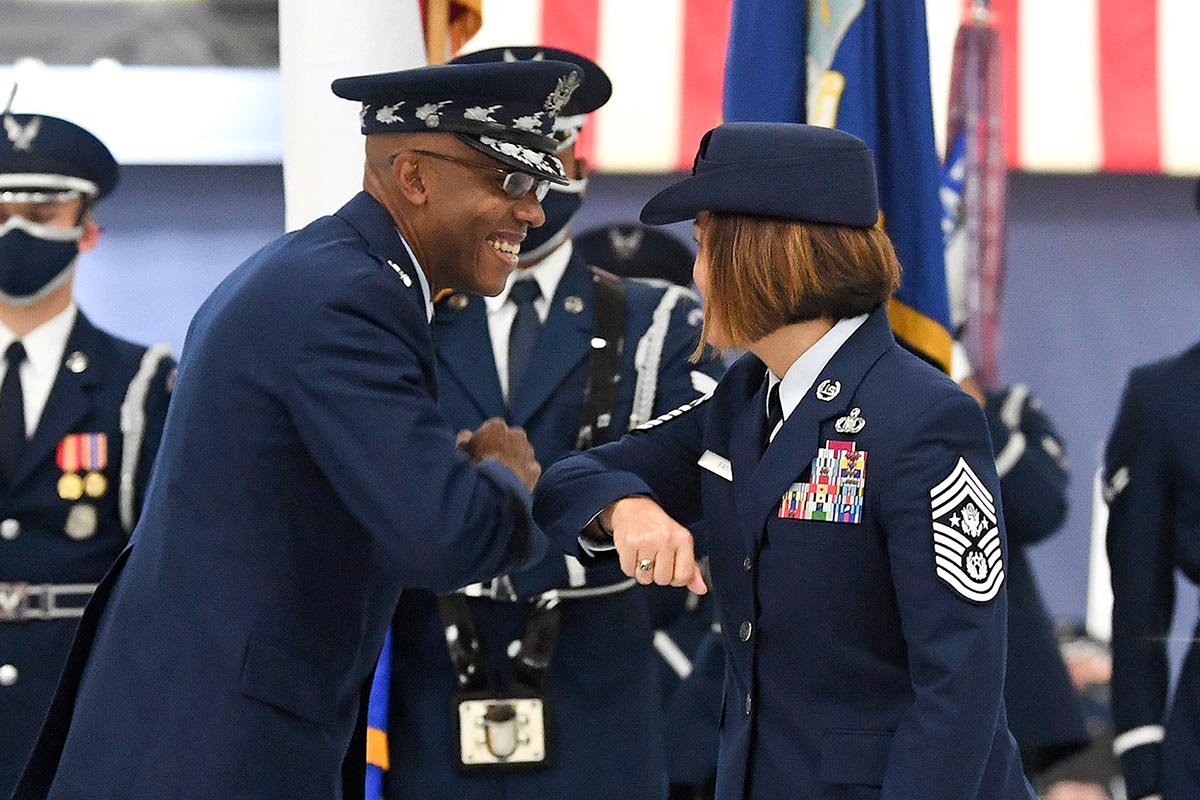
Following the public outcry against the May 25, 2020, police killing of George Floyd, a Black resident of Minneapolis, the four-star general was prompted by his son to make a public statement.
Brown recalls, “He asked me, ‘Dad, what’s PACAF [Pacific Air Forces] saying?’ which is code for, ‘Dad, what are you saying?’”
Brown responded by posting a video (produced by PACAF) on social media. In it he stated: “I can’t fix centuries of racism in our country … [But] I’m thinking about how I can make improvements personally, professionally and institutionally, so that all airmen, both today and tomorrow, appreciate the value of diversity and can serve in an environment where they can reach their full potential.”
Honoring this intention, one of Brown’s first official duties as chief of staff was to appoint JoAnne S. Bass (’05) as the 19th chief master sergeant for the Air Force. CMSAF Bass now holds the distinction of being the first woman and the first Asian American to serve as the Air Force’s highest-ranking enlisted leader.
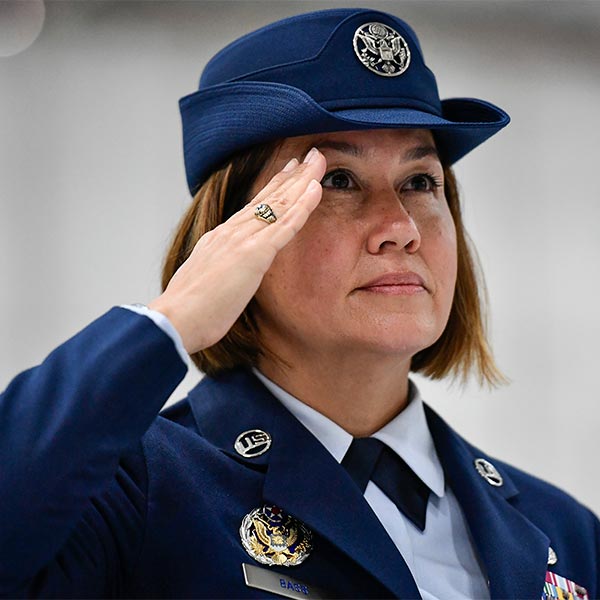
“It is a moment that could not have taken place without the efforts of many women who have gone before me,” said Bass, at her Aug. 14 transition ceremony. “Our Air Force today is on the right side of history … we are focused on setting a foundation for all Americans to see themselves in this great institution.”
Chosen from more than a dozen finalists, Bass, who holds a B.S. in Professional Aeronautics from Embry-Riddle, was promoted from command chief, Second Air Force, at Keesler Air Force Base, Mississippi. Her new role includes continuing work on improving resiliency, reducing suicide and improving diversity and racial equality in the Air Force.
“As we reflect on the past, we must also look forward to cultivating an environment filled with innovation, with collaboration, moving toward our future … a future where we embrace true diversity and forge an inclusive culture where our airmen’s talents, what they bring to the fight, are embedded deep in our roots,” she said.
Secretary Barrett, who leads the U.S. Air and Space Forces, says she feels fortunate to have Brown and Bass on her executive team. “The department benefits from their leadership,” she says.
As a female leader in a male-dominated profession, Barrett is also known for breaking socio-cultural boundaries. Her achievements were hard fought.
After her dad died when she was 13, she went to work to support her five siblings, herself and her mother. “Whatever measure of success I achieved, it was born of necessity,” she says.
An Arizona native, Barrett has also been a cattle and bison rancher for close to three decades; plus, she’s an instrument-rated pilot, and trained and certified for space flight.
“I am fortunate to be from Arizona, where women have been in leadership roles for a very long time — where what you produce is what matters, as opposed to gender or race,” she says.
Former Supreme Court Justice Sandra Day O’Connor, whom Barrett worked for when Day O’Connor was an Arizona State Senator, was one of her mentors and role models.
Barrett, who taught leadership as a Harvard Fellow at the Kennedy School of Government, says she has seen a lot of change over the decades, and there is much less resistance today to women in leadership positions.
“Leadership takes energy, a vision and determination to get things done,” she says. “Leadership is in ample supply among women today around the world.”
Leveling the Field
Maj. Gen. Deanna Burt (’91), who served as director of operations and communications for the U.S. Space Force and is now commanding officer for the Combined Force Space Component Command (CFSCC) at Vandenberg Air Force Base, would agree. When Burt commissioned into the Air Force out of Embry-Riddle’s ROTC Detachment 157, women weren’t allowed to be fighter pilots.
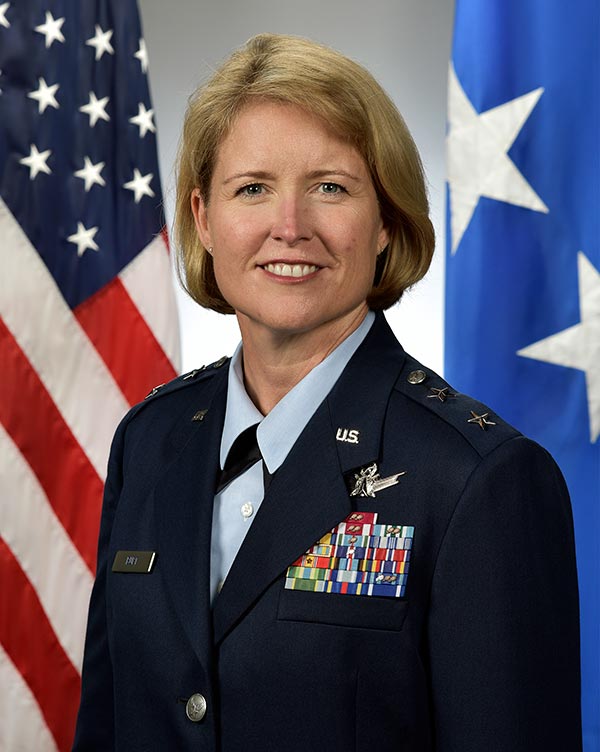
Burt, who earned a B.S. in Aeronautical Engineering from Embry-Riddle, chose the Air Force because of a scholarship. She expected to exit to the private sector after fulfilling her four-year obligation. But during those four years, her friend, Jeannie Leavitt (née Flynn), became the first female fighter pilot.
“The passion and desire for flying that I saw in my female counterparts at Embry-Riddle … now they had a chance and the door was open. I saw many go from T-38 or heavy pilots and cross over to fighter pilots after that,” Burt says.
But what made Burt fall in love with the Air Force and make her career there, was its system of meritocracy — basing promotions on a person’s performance, first and foremost. Later, when she became chair of the developmental team, she put the system into practice herself. When low-performing captains were identified, a team member would provide them with additional mentorship, she says.
This effort helps level the playing field, regardless of a person’s background, Burt says, which brings diversity into leadership — an important goal. “If all you see is a bunch of old white guys, you don’t see a future at the company. You’ve got to be willing to grow people to bring them all the way to the top. I have absolutely been a product of that.
“But it has to be a meritocracy. You can’t artificially put them in by quota, or your organization will struggle as well. Diversity takes time. It has to be persistent.”
Now, decades into what started as a four-and-done commitment, Burt is leading the CFSCC for the nation’s newest military branch — the Space Force — and she wants to make diversity a big part of its success.
“Without diversity, you struggle with new ideas. If you don’t have diversity in age, gender, ethnicities and experiences, you won’t get to a full picture of how best to change and make the Space Force as cutting-edge as it needs to be,” Burt says.
Paving the Way for Immigrants
U.S. Army 2nd Lt. Valdeta Mehanja (’13, ’17) is helping to transform military policy and practices. In July, she received the prestigious American Immigration Council’s American Heritage Award for her efforts on behalf of immigrants.
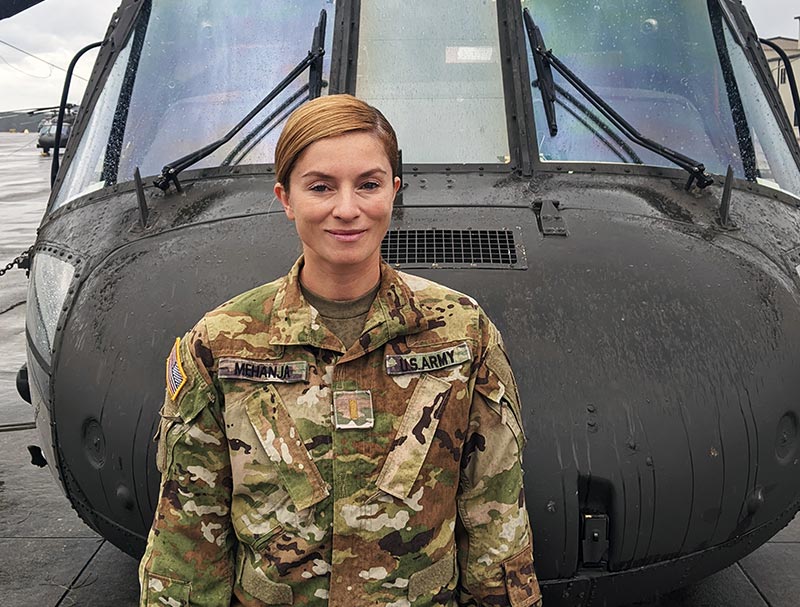
“My accomplishments and contributions to America wouldn’t have been possible if I didn’t have people who helped me along the way,” says Mehanja of the award. “It was not easy to get here; it was a very long journey.”
At age 7, Mehanja and her family fled the war in Kosovo and lived as refugees in Germany until she was 16. When the war was over, they returned home to a destroyed house and a country in ruins. After working as a U.S. military contractor in Iraq and Afghanistan, Mehanja came to Daytona Beach, Florida, in 2010 to attend Embry-Riddle and pursue her dream of becoming a pilot.
At Embry-Riddle, she earned a B.S. and an M.S. in Aeronautical Science, worked as a certified flight instructor and competed (and finished first) in the 2013 and 2014 Air Race Classic (collegiate division). She also placed third (2013) and second (2014) overall in the all-women’s cross-country flight competition.
In 2015, she enlisted in the U.S. Army under the Military Accessions Vital to National Interest (MAVNI) program with the goal of becoming a Black Hawk helicopter pilot.
Despite becoming a naturalized citizen in 2016, Mehanja encountered career-limiting obstacles based on her foreign born status. She fought back and was ultimately allowed to join Officer Candidate School and become an Army Aviation Officer.
In September 2020, she completed her Black Hawk pilot training. She has since transitioned from active duty service to the Alabama National Guard and aspires to work full-time as an airline transport pilot.
“When I was a contractor, I always looked up to the military. I wanted to do what our guys did in Afghanistan,” Mehanja says. “I cannot imagine living anywhere else anymore, except the U.S. My heart really has always belonged in the U.S.”
Carving a Path
Growing up in Pakistan, Hina Kazmi’s (’93) friends didn’t understand her desire to be an aeronautical engineer. “My Pakistani friends thought I was crazy,” she says. “I was fortunate in terms of my parents: They raised us that we were going to have careers and an education, and carve our own path.”
Being one of only a few female students at Embry-Riddle’s Prescott Campus in the ’80s didn’t faze her. She was already accustomed to being the only woman in the room from her high school engineering classes.
Kazmi says early in her career, her youthful naïveté clouded her vision regarding gender disparity. Looking back, she realizes she was often left out of the camaraderie that her male classmates had, especially in group projects, and she would get assigned less complicated tasks, rather than technical or analytical work, which was her true passion.
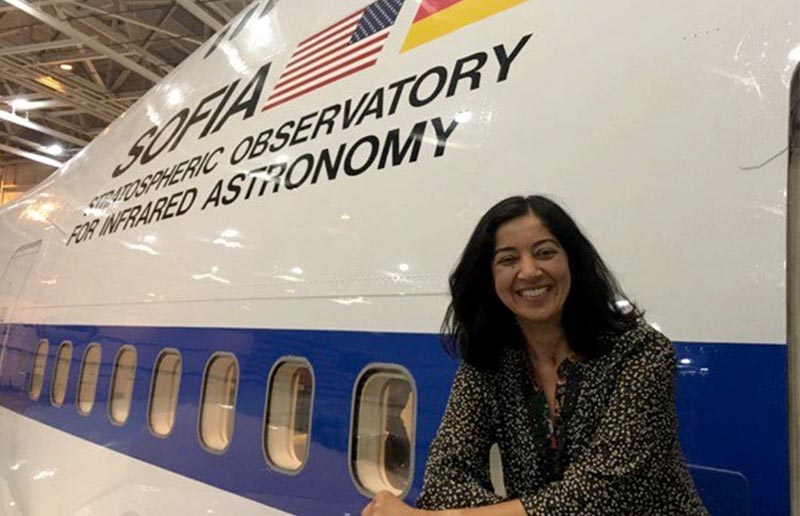
As her career was taking off, Kazmi attended a women’s panel and was inspired by what she saw. “That was the first time I saw women in high positions at organizations like Boeing. You actually want to see diversity, female role models, or whatever role models you aspire to,” she says. “I was lucky to have good mentors along the way.”
Now that she’s on the leadership team as a project manager at NASA’s airborne telescope, the Stratospheric Observatory for Infrared Astronomy, Kazmi is taking the opportunity to help other women rise as well — not only by being a role model, but through direct action.
“I often find myself giving voice to early career females,” Kazmi says. “I seek out diversity in resumes and our hiring decisions. And also in who’s going to be assigned a lead role in a task or project. I feel it’s part of my responsibility, given my diverse background and the path that I was able to carve for my career in the aerospace industry with the help of such mentors and supporters.”
Changing the Paradigm
As Secretary of the Air Force, Barbara Barrett sees building diverse leadership teams as her responsibility, as well. She says the women of her generation were made to believe they had three career choices: teacher, secretary or nurse.
“I went through that mental inventory and said I wanted to be a nurse. My dad responded with, ‘Why not a doctor?’ Those four words were instrumental in changing my perception of what girls were able to do.”
Today, Barrett works to empower diverse groups around the world. She built the Artemis program, which supports businesswomen in Afghanistan; and she was president of the International Women’s Forum, which helps women share leadership experiences and develop future business leaders.
“It is important that women and girls see women in leadership roles so they can envision themselves growing into similar positions of leadership,” she says. “This concept does not apply exclusively to gender. It also applies to diversity generally, including leaders of varying cultural heritages and races.”
Editor’s Note: Barbara Barrett (HonDoc ’06) resigned from her role as secretary of the Air Force on Jan. 20, 2021, as President Joe Biden’s administration took office.
